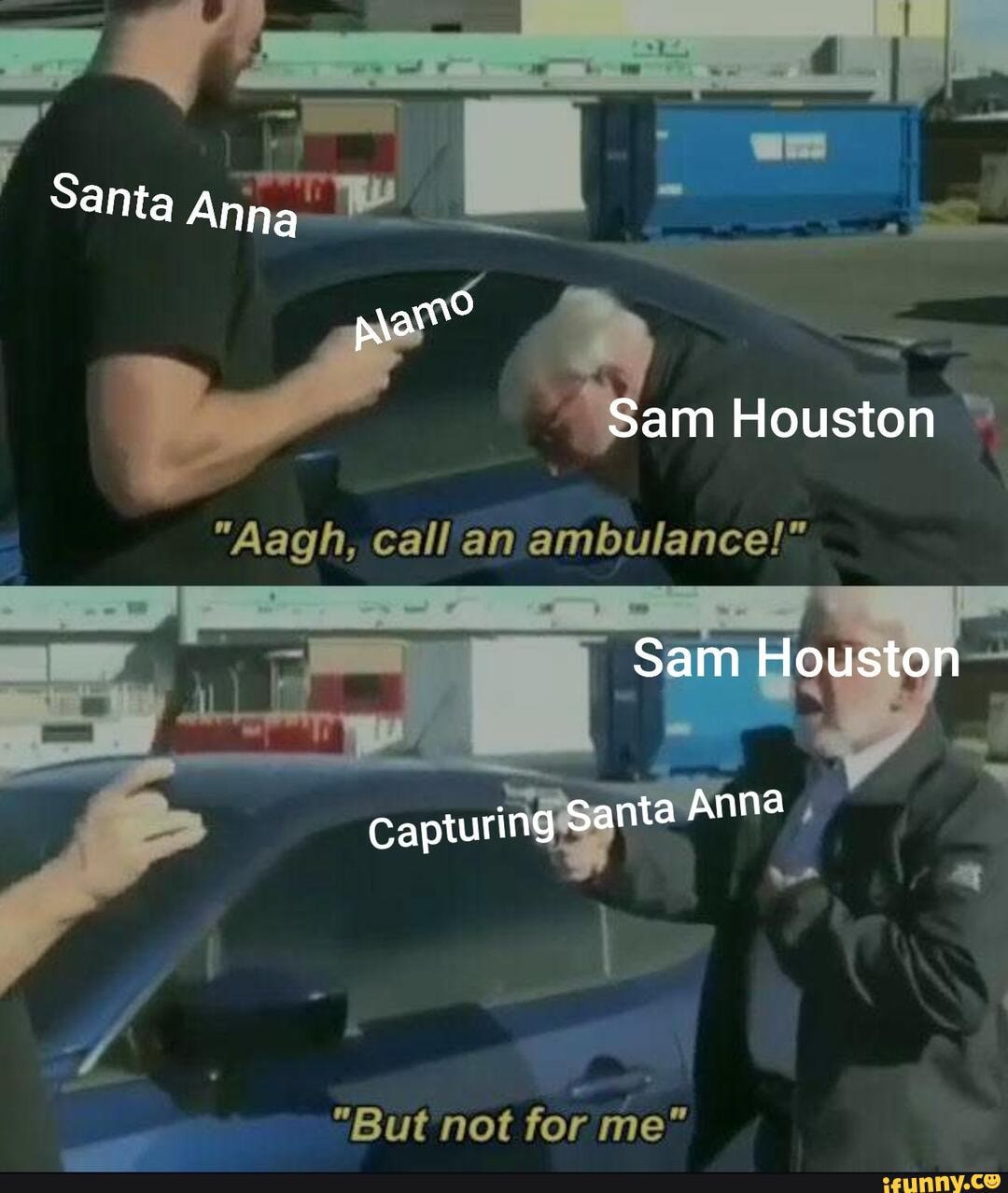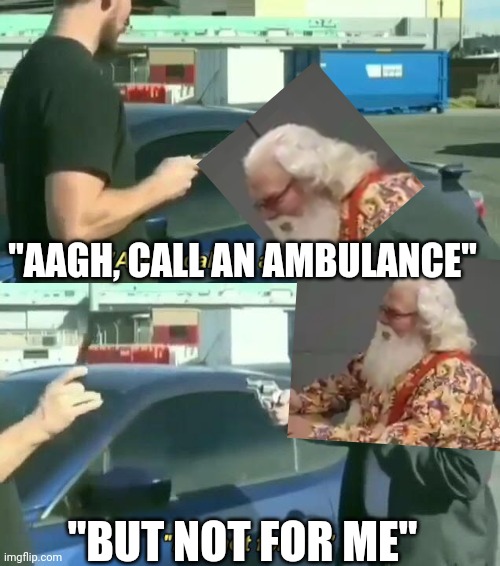Call An Ambulance But Not For Me: Understanding The Phrase And Its Cultural Significance
“Call an ambulance but not for me” is a phrase that has transcended its literal meaning, becoming a cultural phenomenon in various contexts. It captures a blend of humor, irony, and sometimes a deeper commentary on societal issues. This article will delve into the origins, implications, and various interpretations of this phrase, exploring its relevance in today’s society. By understanding the nuances of this expression, we can appreciate the layers of meaning it carries and its impact on popular culture.
In recent years, the phrase has seen a resurgence on social media platforms, often used in memes, videos, and even as a form of self-deprecating humor. It encapsulates a feeling of resilience, suggesting that while one may be in distress, they are not seeking help in the traditional sense. This article aims to dissect this intriguing expression, providing insights into its usage, cultural significance, and the psychology behind it.
As we navigate through the various aspects of this phrase, we will also touch upon its implications in mental health discussions, social commentary, and the way we communicate distress in contemporary society. Join us as we explore “Call an ambulance but not for me” in depth.
- Presley Cash Understanding The Legacy Of A Rising Star
- You Are My Sunshine The Inspirational Journey Of Lebron James
Table of Contents
- 1. The Origin of the Phrase
- 2. Cultural Significance in Modern Society
- 3. Implications for Mental Health
- 4. Humor and Irony: The Duality of the Phrase
- 5. The Phrase in Memes and Social Media
- 6. Psychological Aspects of the Phrase
- 7. Real-Life Cases of Miscommunication
- 8. Conclusion
1. The Origin of the Phrase
The phrase “Call an ambulance but not for me” likely gained popularity from internet culture, particularly within meme communities. It encapsulates a sentiment where the speaker acknowledges their condition but humorously suggests that they are coping without the need for external help.
Historical instances of similar expressions can be traced back to various forms of media, from movies to television shows, where characters exhibit a stoic demeanor in the face of adversity. This phrase embodies that same spirit, emphasizing self-reliance and often a darkly comedic undertone.
1.1 The Phrase in Literature and Media
The phrase has been used in various forms within literature and media, often reflecting themes of resilience and humor in the face of crisis. In many narratives, characters who utter similar lines often do so to maintain a facade of strength or to subvert expectations.
- Hes A 10 But Navigating The Modern Dating Dilemma
- Sturniolo Triplets Birthday A Celebration Of Talent And Connection
- Movies: Characters in films often use similar lines to convey their toughness.
- Television: Sitcoms frequently employ this type of humor to lighten serious situations.
- Literature: Authors use such expressions to create depth in character portrayal.
2. Cultural Significance in Modern Society
In today’s fast-paced world, where mental health issues are increasingly discussed, the phrase serves as a commentary on how individuals cope with distress. It reflects a cultural trend where people often mask their vulnerabilities with humor.
Understanding the phrase in this context highlights the balance between seeking help and maintaining a sense of independence. It can also indicate a reluctance to burden others with one’s problems.
2.1 The Role of Humor in Coping Mechanisms
Humor is a powerful tool for coping with difficult situations. The phrase “Call an ambulance but not for me” embodies this mechanism, illustrating how people use humor to deflect seriousness.
- Reduces Stress: Laughter can alleviate feelings of anxiety and stress.
- Fosters Connection: Sharing humor can create bonds among individuals facing similar challenges.
- Encourages Resilience: It promotes a mindset of endurance in tough times.
3. Implications for Mental Health
The phrase also opens discussions about mental health, particularly regarding how individuals express their struggles. It can indicate a hesitance to seek help due to stigma or fear of vulnerability.
In a world that often encourages us to “tough it out,” phrases like this can resonate with individuals who feel the pressure to appear strong.
3.1 The Stigma Around Seeking Help
Despite the increasing awareness of mental health, stigma still surrounds seeking help. This phrase highlights the conflict between needing assistance and the fear of being perceived as weak.
- Social Pressure: Many feel they must maintain a facade of strength.
- Fear of Judgment: Concerns about how others will perceive their struggles.
- Normalization of Struggle: Encouraging open discussions can help reduce stigma.
4. Humor and Irony: The Duality of the Phrase
The humor embedded in the phrase often masks deeper issues, creating a complex duality. While it can be seen as a light-hearted quip, it also reflects serious underlying sentiments.
This duality can lead to varied interpretations, depending on the context in which it is used.
4.1 The Irony of Self-Sufficiency
The irony of the phrase lies in the self-sufficient attitude it portrays. While it may seem humorous, it raises questions about the need for community support and the importance of reaching out for help.
- Independence vs. Support: The struggle between wanting to be self-reliant and needing assistance.
- Emotional Vulnerability: The irony often highlights the difficulty in expressing true emotions.
5. The Phrase in Memes and Social Media
Social media has played a significant role in popularizing the phrase. Memes often utilize it to convey relatable experiences, making it a staple in online humor.
This digital culture allows for a shared understanding of the sentiment behind the phrase, often bringing people together through laughter.
5.1 Examples of Memes
Here are some examples of how the phrase has been used in memes:
- Images portraying exaggerated reactions to minor injuries.
- Situational humor where individuals find themselves in absurd predicaments.
- Comical takes on serious situations, emphasizing resilience through humor.
6. Psychological Aspects of the Phrase
From a psychological perspective, the phrase reflects a coping mechanism that many individuals adopt. It illustrates how humor can serve as a shield against emotional distress.
By analyzing the psychological implications, we can gain insights into the human condition and the various ways people navigate their challenges.
6.1 The Role of Defense Mechanisms
Defense mechanisms are psychological strategies that individuals use to cope with reality and maintain self-image. The phrase exemplifies how humor acts as a defense mechanism.
- Denial: Using humor to deny the severity of a situation.
- Rationalization: Justifying one’s feelings through comedic interpretations.
- Displacement: Channeling emotions into humor rather than confronting them directly.
7. Real-Life Cases of Miscommunication
While the phrase is often used humorously, it can lead to real-life misunderstandings. Instances where individuals adopt this attitude can result in miscommunication about their actual needs.
Understanding these cases can help highlight the importance of clear communication, especially regarding emotional and physical health.
7.1 Examples of Miscommunication
Here are some scenarios where the phrase could lead to misunderstandings:
- A friend jokingly downplaying an injury, leading others to think they aren’t in pain.
- Someone expressing distress humorously, causing others to dismiss their feelings.
- Situations where serious issues are masked by humor, leading to a lack of support.
8. Conclusion
In conclusion, “Call an ambulance but not for me” is more than just a humorous phrase; it encapsulates a range of emotions and societal issues. It reflects how individuals navigate their challenges while often masking vulnerability with humor.
This phrase invites us to reflect on our communication styles and the importance of understanding the underlying messages conveyed through humor. As we continue to engage with this expression, let’s strive for a balance between resilience and seeking support in our lives.
We encourage readers to



Detail Author:
- Name : Miss Alivia Schimmel Jr.
- Username : izieme
- Email : nmann@gmail.com
- Birthdate : 2005-07-20
- Address : 9603 Sunny Views Suite 951 North Holden, UT 73380-9133
- Phone : 937.486.5234
- Company : Purdy-Wilkinson
- Job : Religious Worker
- Bio : Et rerum et nihil. Voluptatem qui quis perspiciatis voluptatem. Autem laborum nostrum accusantium magnam ipsam laboriosam est.
Socials
linkedin:
- url : https://linkedin.com/in/koeppd
- username : koeppd
- bio : Voluptatem pariatur deserunt sit aut at.
- followers : 6854
- following : 2291
facebook:
- url : https://facebook.com/dinokoepp
- username : dinokoepp
- bio : Perspiciatis quo est veritatis consequatur et aut.
- followers : 6930
- following : 910
instagram:
- url : https://instagram.com/koeppd
- username : koeppd
- bio : Odit vitae labore quae aut aut. Est et nobis ipsam vel necessitatibus aut.
- followers : 6093
- following : 2849
tiktok:
- url : https://tiktok.com/@dino.koepp
- username : dino.koepp
- bio : Temporibus nobis itaque in autem quod eaque.
- followers : 5793
- following : 1556
twitter:
- url : https://twitter.com/koeppd
- username : koeppd
- bio : Numquam quae quam officia quasi repellat. Adipisci fuga iste voluptatum consequatur. Omnis quo adipisci nam repellendus quidem.
- followers : 3300
- following : 1264